A phygital hockey tournament has ended in Kazan
Kazan hosted a phygital hockey tournament among six Russian teams, where Liga Pro Team from Moscow clinched a difficult victory against NBSK in a tense final game to secure a spot in the 2024 Games of the Future. The tournament also saw the debut of ZaryaD, a team led by three-time world champion Danis Zaripov, whose son, Artur, played on the team and scored several goals.
Phygital sports, a revolutionary blend of traditional sports and gaming, are gaining traction in Russia, with more than 2,000 people expected to compete in 21 disciplines at the Games of the Future, which will kick off in three months. Earlier this year, qualifications in football and basketball were held, followed by a phygital hockey tournament in Kazan.
The regulations were the same as in the other comparable sports. Participants first confronted each other on gaming consoles before three seven-minute periods of four-on-four play ensued on the ice.
Apart from the cup, the winner took home a spot at the Games of the Future. The six contenders were Liga Pro Team, HC Butyrka, NBSK, RFSO Lokomotiv, 3FRENZY, and ZaryaD.
Read more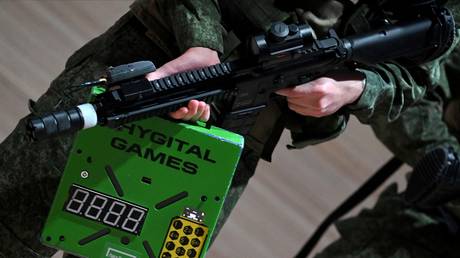 Phygital Games conclude in Russia’s Kazan
Phygital Games conclude in Russia’s Kazan
Of particular note was the last of those teams, which was led by three-time world champion Danis Zaripov, its name derived from a hockey stick factory owned by the former ice hockey star. His son, Artur, was one of the team’s players. Unfortunately for them, they got off to a rocky start. Even though Zaripov Jr. scored the first goals in both games of the group tournament, ZaryaD lost and failed to make it to the playoffs, reflecting its lack of experience in cybersports.
“We wanted to give it a go and signed up. We took the first steps, but the results so far are modest, as we didn’t make it to the semifinals. We learn from our mistakes though. There’s still a long way to go. We’ll try to do our homework, and it’s going to be a different story at the next tournament,” Zaripov Sr. said.
The likelier contenders were those that combined competent ice hockey players with excellent gamers. That is especially true of Liga Pro Team. On the one hand, it invited Pavel Zdunov, the KHL’s top rookie in 2010/11 and Gagarin Cup winner Vladimir Malinovsky, while on the other, it had Igor Motov, a champion of Russia in cybersports.
During the group tournament, Liga Pro Team thrashed ZaryaD and Lokomotiv as it secured a comfortable lead early at the e-sport stage.
“We’re a close-knit team, and we discuss everything in the locker room. We can always give the guys some tips on ice hockey play, where we have more experience. They, however, can teach us about cyberhockey. It has its own theory and tactics,” Malinovsky said.
The second semifinalist that emerged from Group B was Lokomotiv, which beat ZaryaD in a game for second place. The other group of three teams had a lot more intrigue. First, HC Butyrka conceded an unexpected defeat to 3FRENZY, the current Media League silver medalist, before beating NBSK. NBSK, in its turn, routed 3FRENZY in an epic game for the second spot in the playoffs.
Read more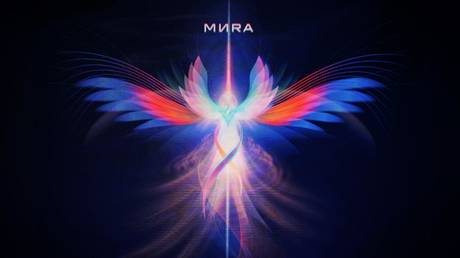 Sport of the new reality: Russia prepares for ‘Games of the Future’
Sport of the new reality: Russia prepares for ‘Games of the Future’
The fate of the semifinals was largely sealed during the e-sport stage, where NBSK beat Lokomotiv 8-0. It would have taken a miracle for Lokomotiv to come back on the ice, which didn’t happen. The physical ice hockey game ended 4-4, with Andrey Maximov of NBSK scoring two goals.
The second semifinal followed the same pattern, with Liga Pro Team securing an eight-goal lead with a 10-2 victory in cyberspace. To the credit of the team from Voronezh, they put up a formidable fight on the ice. During the first period, the teams had a total of six unsuccessful penalty shots, while goals by Glazunov and Mokrushin helped HC Butyrka narrow their opponents’ lead.
The Moscow team, however, did not allow Butyrka to gain momentum. Butyrka pulled their goaltender during the final stretch of the game but only managed to score once, while Zdunov leveraged his years of experience and scored twice when his team needed it the most. Even though Liga Pro Team conceded a 5-4 loss, it still won the semifinal by a comfortable margin.
The decisive games, however, were rich in suspense. HC Butyrka defeated Lokomotiv to win the bronze medal. After the initial draw in the digital game, Lokomotiv surged to a lead in the hockey rink, yet only to be thwarted by Butyrka, which scored three goals in a matter of minutes and cemented its victory.
The final standoff was the crown jewel of the tournament. NBSK pulled ahead of Liga, scoring two goals at the beginning of the first period of the cyberhockey game yet was unable to keep their advantage and eventually lost 5-2.
Read more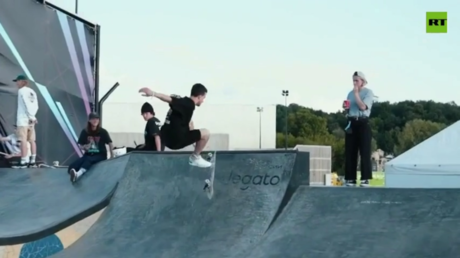 Futuristic skateboard games kick off in Russia
Futuristic skateboard games kick off in Russia
To their credit, NBSK came within a hair’s breadth of making a comeback on the ice. Vladislav Korotky narrowed the lead 11 seconds before the intermission, which was immediately followed by a goal by Maximov. Just then, Alexander Kosobokov had a chance to tie the overall score but hit the crossbar.
The rest of the game was playing catch-up, with Liga scoring and NBSK trying to narrow the lead. With 90 seconds remaining, NBSK was trailing by two goals and pulled their goalie but was unable to save the game.
Liga Pro Team won and earned a chance to compete at the Games of the Future. The champions say their success was the result of great teamwork, as well as a strong lineup.
“We’re overwhelmed. We haven’t had so much excitement in a long time. The final game was awesome, both the cyber part and the physical part. NBSK were great, but luck was on our side. We did a lot of work and set a clear goal ahead of us. Add to that discipline and professionalism. There was strict order in the locker room, which was really helpful. Another important factor was that we got really close. The team was one well-oiled machine, where everyone fought for his teammates,” a triumphant Sergei Filippov, the captain of the winning team, said.

 1 year ago
391
1 year ago
391

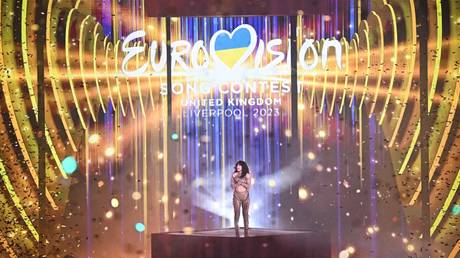
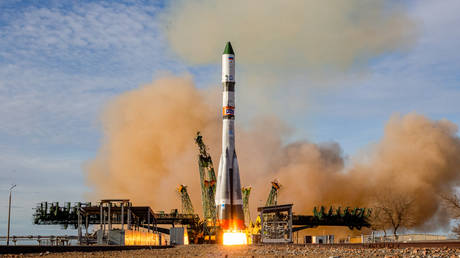

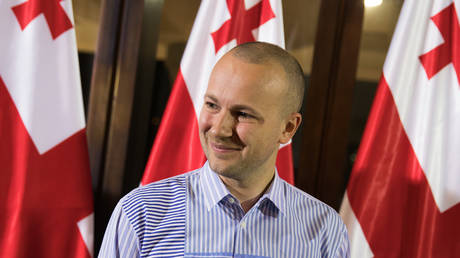
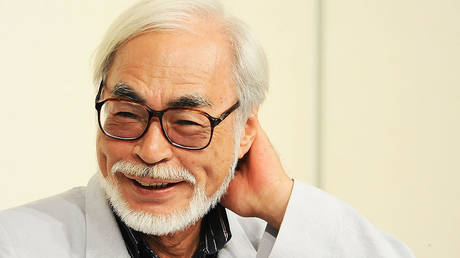


 English (US) ·
English (US) ·